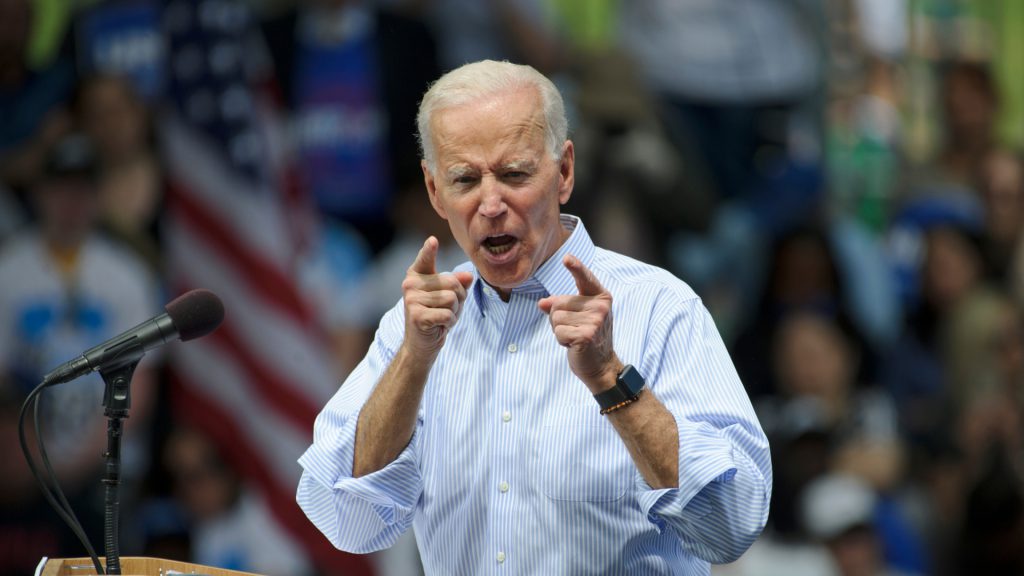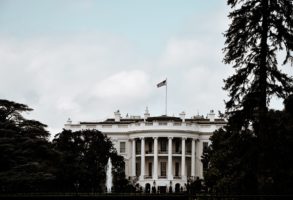
Published August 6, 2020
Political pledges often cause headaches. On the eve of the 1904 election, President Theodore Roosevelt wrote to his son Kermit: “If things go wrong remember that we are very, very fortunate to have had three years in the White House, and that I have had a chance to accomplish work such as comes to very, very few men in any generation.” The next day, he won the biggest landslide since James Monroe ran unopposed in 1820. Because Roosevelt had taken office upon the assassination of William McKinley in 1901 and had served nearly all of McKinley’s term, he felt it would be wrong to transgress the two-term tradition established by George Washington. On election night, he told reporters in the Oval Office (which had recently been added to the White House complex) that “Under no circumstances will I be a candidate for or accept another nomination.” He regretted it almost immediately. Later he would say, “I would be willing to cut off my hand if I could call back that statement.”
In 1988, accepting the Republican nomination for the presidency, George H. W. Bush also made a pledge. While his opponent said that he might raise taxes as a last resort, Bush promised “no new taxes.” He told the crowd: “The Congress will push me to raise taxes and I’ll say ‘no.’ And they’ll push and I’ll say ‘no’. And they’ll push again and I’ll say to them ‘Read my lips. No new taxes.’” Bush did wind up agreeing to raise taxes. It may have been the right governing choice, but because he had pledged in such memorable terms not to do it, he stirred a profound sense of betrayal among Republicans and encouraged cynicism about politicians in general.
On March 15, in a debate with Bernie Sanders, former vice-president Joe Biden pledged to choose a woman as his running mate. Now, that pledge is weighing him down. He has delayed the announcement of his choice by a week, suggesting that it is proving more difficult than he expected.
It’s great to pick a woman for vice president, but less great if you’ve first pledged to do so. The pledge telegraphs that you were not looking for the best person, but the best woman.
Pledges are self-inflicted wounds, painting politicians into corners. Biden could not know in March that the country would be convulsed by the death of George Floyd at the end of May and that pressure would build among Democrats for the ticket to include an African-American. Because of his pledge, Biden appears to be searching for a running mate only among African-American women. Absent that pledge, he could be considering Sen. Cory Booker of New Jersey or former Gov. Deval Patrick of Massachusetts.
There are few Black women who have the experience and stature to step into the presidency.
Don’t get me wrong. The paucity of African-American women in top-tier political roles is the result of centuries of slavery and discrimination. But it is a fact nonetheless. There is only one African American woman United States senator. There are no governors.
Any presidential candidate, and particularly one who will be 78 on inauguration day, needs to choose someone ready to step into the job at a moment’s notice. That someone needs to have governing experience. She needs to have endured the pitiless spotlight of national politics. She needs to be broadly acceptable to swing voters. And she needs to be someone the president trusts completely.
Among the women who meet the above tests, there are problems. Sen. Kamala Harris has run for president and been exposed to the scrutiny a campaign brings (though not nearly to the degree she will be if chosen for vice president), but she forfeited some trust with Biden by aiming an insulting charge against him during one of the early debates in 2019, suggesting that he allied with racists on busing decades ago. Also, her campaign was a bit of a mess. She endorsed sweeping policy changes without thinking through the consequences, and she had trouble parrying attacks. As it turned out, her torpedo to Biden’s hull was the biggest moment in her race.
Susan Rice has a distinguished record of public service but has never run for anything. She is also potentially quite a lightning rod. She misled the country about what had happened in Benghazi, Libya in 2012, and Trump partisans believe she was part of a conspiracy to damage the incoming Trump administration. The latter accusation against her is mostly rubbish, but putting her on the ticket would give the Trump campaign something to talk about that might resonate with the Fox watching crowd (not all of whom are Trump voters). Because she’s never been in elective politics, she is almost guaranteed to make rookie mistakes.
Rep. Karen Bass was speaker of the California assembly and now heads the Congressional Black Caucus. People apparently like and respect her, even Republican people. But a number of troubling statements and associations have surfaced since her name arose by the Great Mentioner. In 2010, she spoke at the opening of a huge Scientology Center in Los Angeles, praising the cult and its leader, L. Ron Hubbard. Questioned about this, she tweeted last weekend that she had appeared there because the center was in her district—which isn’t much of an explanation. But that wasn’t even true. A spokesman told Politico on August 5 that she “regrets the error.” Hoo boy.
Bass’s record is full of questionable judgments. She eulogized Oneil Marion Cannon as a “friend and mentor” in 2017 without mentioning that he was a long time member of the Communist Party USA. As a young adult, she was a member of the Venceremos (We Will Triumph) Brigade, a pro-Castro group, and traveled to Cuba eight times in the 1970s under their auspices. When Castro died in 2016, Bass released a statement of condolences to the Castro family and to the Cuban people: “The passing of the Comandante en Jefe is a great loss to the people of Cuba.” That Comandante language is the way leftists speak. And no, the passing of a cruel dictator was nothing for the Cuban people (who never once got the chance to vote him out) to mourn. Once again, Bass has attempted to clean this up, arguing that she is not a Castro supporter, and that she would not say the same thing today.
Look, Donald Trump has said equally appalling things about Kim Jong Un (“He’s a funny guy, he’s very smart, he’s a great negotiator. He loves his people…”). The Republican Party that stands with Trump is hardly in a position to throw stones at Bass.
And yet, we are told that part of what made Trump possible was the tendency on the right to look the other way about the extremists, kooks, and unsavory elements within their own ranks. The same rule should apply to Democrats. Karen Bass may well be a reasonable person but she has shown a willingness to consort with extremists (communists) and kooks (Scientologists) that raises serious questions about her judgment. Besides, choosing such a confirmed leftist would alarm the centrist voters Biden will need.
Biden is in a tough spot. Time for a closer look at Senator Tammy Duckworth and Rep. Val Demings. Duckworth’s likability and story of heroism and sacrifice is powerful. She seems a classic “do no harm” choice. Val Demings is a former police chief. That has upsides and downsides. The disadvantage is that there is no police department in which stories of wrongdoing will not surface, and there are some from Orlando. But the upsides are vastly greater. Who better than an African-American former cop to address questions of police brutality with sensitivity? And who can accuse the Democrats of being the party of “Defund the police” with Val Demings on the ticket? Further, Demings is no radical. Based on bills she sponsored or co-sponsored, she was found to be right in the center of the Democratic party.
The conventional wisdom about vice-presidential picks is that they can harm the ticket, but not help. Biden is about to become the Democratic nominee because he was perceived to be safe. He should choose someone just as safe for VP.
Mona Charen is a nationally syndicated columnist, a senior fellow at the Ethics and Public Policy Center, a contributor to The Bulwark, and host of The Bulwark’s Beg to Differ podcast.







